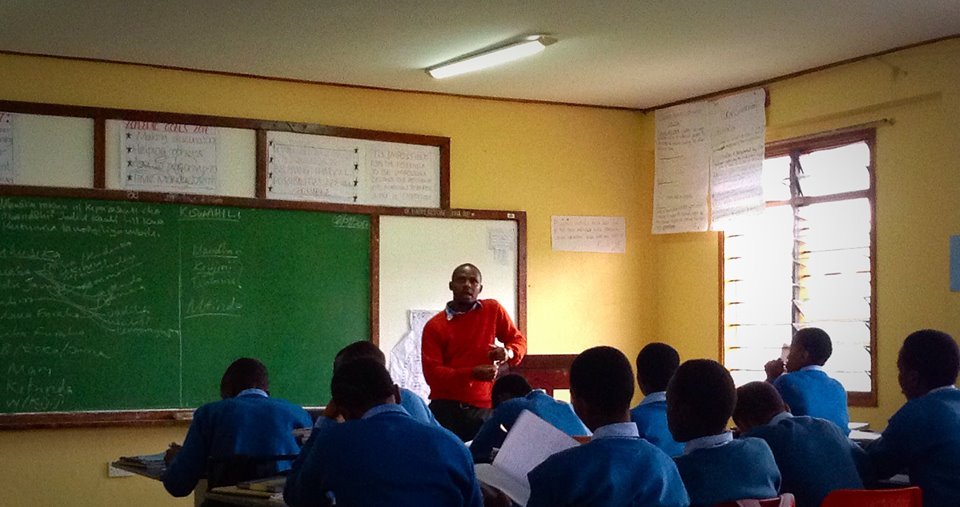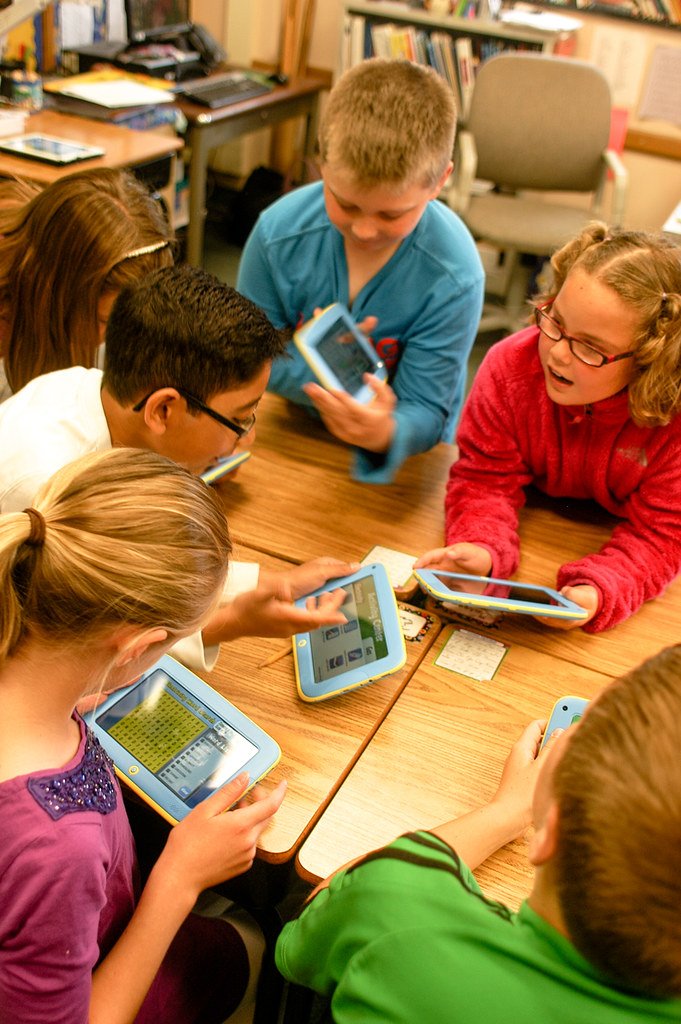As the world turns its focus towards the urgent need for sustainable living, many moms are seeking ways to instill eco-consciousness in their little ones. Teaching children about sustainability is not just a noble endeavor but a crucial responsibility that will shape their future habits and impact the health of our planet. By imparting these values early on, moms can empower their kids to become stewards of the environment and advocates for a greener tomorrow. In this article, we will explore a variety of creative yet practical tips that moms can employ to educate their children on the importance of sustainability. From fun activities to insightful discussions, let’s embark on a journey that will empower both moms and kids to make a positive difference in the world we all call home.
Table of Contents
- Introducing the Concept of Sustainability: Engaging Kids from an Early Age
- Exploring Sustainable Practices: Interactive Activities that Educate and Inspire
- Teaching by Example: Nurturing Sustainable Habits through Daily Actions
- Empowering Kids to Take Action: Encouraging Eco-Friendly Behaviors in Their Day-to-Day Lives
- Fostering a Sense of Responsibility: Guiding Kids to Become Sustainability Advocates
- Q&A
- Closing Remarks

Introducing the Concept of Sustainability: Engaging Kids from an Early Age
Teaching kids about sustainability at an early age is crucial in cultivating a sense of responsibility and care for the environment. By introducing this concept in a fun and engaging way, children can develop an understanding of their role in creating a sustainable future.
One effective way to engage kids in sustainability is through interactive activities. Organize a mini-garden project where each child gets to plant their own vegetables or flowers. This hands-on experience not only teaches them about the importance of natural resources, but also instills a sense of pride and accomplishment as they witness the growth and development of their plants.
Furthermore, storytelling sessions centered around environmental themes can capture the attention of young minds. Choose books that highlight the impact of human actions on the planet, and encourage discussions on how they can make a difference. By creating a safe space for open dialogue, children can learn from one another, exchange ideas, and brainstorm innovative ways to contribute to a sustainable future.

Exploring Sustainable Practices: Interactive Activities that Educate and Inspire
In this section, we will dive into a range of interactive activities that not only educate but also inspire individuals to embrace sustainable practices in their everyday lives. Get ready to embark on a journey of discovery and action, where we explore innovative ways to make a positive impact on our planet.
1. Eco-Challenges:
Embark on a series of exciting eco-challenges designed to engage your creativity and problem-solving skills. From creating upcycled crafts to designing sustainable solutions for everyday problems, these hands-on activities will help you think outside the box while encouraging a sustainable mindset.
2. Interactive Workshops:
Participate in interactive workshops led by sustainability experts and environmental advocates. Through these engaging sessions, you will learn about the importance of sustainable practices in various aspects of life, such as food, fashion, and transportation. Discover practical tips, tools, and techniques that empower you to live a more sustainable lifestyle – all while having fun and connecting with an inspiring community of like-minded individuals.
3. Virtual Sustainability Tours:
Embark on virtual sustainability tours that take you on a captivating journey around the world, showcasing inspiring examples of eco-friendly practices and initiatives. Explore lush green rooftops in urban jungles, visit eco-conscious communities, and discover innovative eco-technologies that are shaping a greener future. Delve into the stories of individuals and organizations who are making a difference, and find inspiration to take action in your own community.
Join us as we delve into these interactive activities, uncovering the power of sustainable practices, and finding inspiration for a greener, brighter future. Let’s embrace the opportunity to learn, educate, and inspire one another towards a more sustainable world.
Teaching by Example: Nurturing Sustainable Habits through Daily Actions
Setting an Environmental Norm:
Leading by example is a powerful tool in teaching sustainable habits. By integrating eco-friendly actions into our daily lives, we foster a culture of environmental responsibility that can have far-reaching effects. Whether it’s recycling, conserving energy, or choosing sustainable products, small actions can make a big impact when consistently practiced.
The Power of Consistency:
The repetition of sustainable actions enables us to drive lasting change. Demonstrating such habits shows others that living sustainably is not just a fleeting trend, but a lifestyle choice worth pursuing. When we consistently model our values through daily actions, our words and teachings gain credibility, inspiring those around us to follow suit.
Teaching through Everyday Encounters:
Simple yet intentional teaching moments arise naturally in our everyday encounters. Imagine the powerful message conveyed by bringing a reusable water bottle to work, by opting for public transportation, or by composting food waste. These actions not only reduce our own environmental impact but also provide opportunities to engage in conversations and educate others through casual encounters.

Empowering Kids to Take Action: Encouraging Eco-Friendly Behaviors in Their Day-to-Day Lives
Empowering Kids to Take Action
Encouraging Eco-Friendly Behaviors in Their Day-to-Day Lives
Children are the future, and teaching them about the importance of taking care of our planet is crucial. By empowering kids to take action and adopting eco-friendly behaviors in their day-to-day lives, we can create a sustainable future for generations to come.
Here are some fun and effective ways to encourage eco-conscious habits among children:
- Make recycling a game: Introduce recycling bins for different types of materials, such as plastic, paper, and glass. Challenge kids to collect and sort items correctly, earning points for every successful round. This not only educates them about recycling but also makes it an engaging and enjoyable activity.
- Grow a green thumb: Get children involved in gardening by allocating a small space for them to plant their favorite vegetables or flowers. Teach them about the importance of organic gardening and how it helps sustain the environment. Watching their plants grow and flourish will instill a sense of responsibility and appreciation for nature.
- Reduce waste with reusable alternatives: Teach kids the benefits of using reusable items like water bottles, lunch boxes, and cloth napkins instead of disposable ones. Make it fun by allowing them to choose their own eco-friendly options with vibrant designs or their favorite characters.
- Explore alternative transportation: Encourage kids to walk or bike to nearby destinations instead of relying on cars. Plan family outings to local parks or markets that can be reached by foot or bicycle. Not only does this reduce carbon emissions, but it also promotes an active and healthy lifestyle.
Remember, teaching eco-friendly behaviors to kids goes beyond theoretical knowledge – it’s about fostering a love for the environment through hands-on experiences. By empowering them to make a difference, we are paving the way for a greener, more sustainable world.
Fostering a Sense of Responsibility: Guiding Kids to Become Sustainability Advocates
In a world grappling with climate change and environmental degradation, it is paramount to instill a sense of responsibility for the planet in our children. By guiding them to become sustainability advocates from an early age, we can empower them to make a positive impact on their surroundings and inspire others to follow suit.
One effective way to foster a sense of responsibility is through education. Teaching children about the importance of protecting the environment and the consequences of unsustainable practices can help them develop empathy and an understanding of the interconnectivity between nature and human life. Encourage them to actively participate in discussions, ask questions, and share their thoughts on sustainability-related topics.
Another key aspect of guiding kids towards becoming sustainability advocates is leading by example. Children often look up to their parents, guardians, and teachers as role models. By demonstrating sustainable behaviors in our daily lives, such as recycling, conserving energy and water, and practicing mindful consumption, we can inspire them to follow suit. Encourage them to adopt eco-friendly habits and recognize and appreciate their efforts when they make environmentally conscious choices.
Encouraging children to engage in hands-on activities that promote sustainability can also nurture their sense of responsibility. Planting trees, maintaining a small garden, cleaning up litter, or participating in recycling programs can help them develop a deeper connection with the environment. These activities not only enable them to witness the direct impact they can have on their surroundings but also instill a sense of pride in their contribution to making the world a better place.
To foster a lifelong commitment to sustainability, it is important to highlight the positive outcomes of their efforts. Emphasize the positive changes they have contributed to, whether it be reducing waste, conserving resources, or raising awareness within their community. Showing them the bigger picture and how their actions align with global efforts can further ignite their passion for sustainable practices and inspire them to become advocates for a better future.
Q&A
Q: Why is it important to teach kids about sustainability?
A: Teaching kids about sustainability instills values of environmental responsibility, helping them understand the impact of their actions on the planet and empowering them to make conscious choices for a greener future.
Q: How can I introduce the concept of sustainability to my kids?
A: Start by explaining simple concepts, like reducing waste, conserving resources, and recycling. Engage them in activities such as gardening or composting to make the concept more tangible and relatable.
Q: Are there any fun games or activities that can teach kids about sustainability?
A: Absolutely! You can create eco-friendly crafts using recycled materials, play “I spy” while taking a nature walk to observe different ecosystems, or even have a competition to see who can come up with the most creative ways to save energy at home.
Q: How can I encourage my kids to adopt sustainable habits?
A: Lead by example. Show them the importance of turning off lights when they leave a room, using reusable water bottles, or choosing eco-friendly products. Celebrate their small steps towards sustainability to motivate and reinforce their behaviors.
Q: What are some age-appropriate resources I can use to teach my kids about sustainability?
A: There are numerous books, websites, and documentaries available tailored to different age groups. Some popular options include “The Lorax” by Dr. Seuss, educational websites like National Geographic Kids, or nature-focused TV shows like “Planet Earth.”
Q: How can I make sustainability a part of our daily routine?
A: Incorporate sustainable practices into daily activities, like making it a habit to sort recycling, using eco-friendly lunch boxes, or having meat-free days. Over time, these small changes will become second nature to your kids.
Q: How can I explain the urgency of environmental issues to my kids?
A: Use age-appropriate language and visuals to help them understand the current environmental challenges the world is facing. Teaching them the importance of preserving natural habitats and protecting endangered species can help create a sense of responsibility from an early age.
Q: Is it possible to involve my kids in sustainability initiatives beyond our home?
A: Definitely! Look for local community or school projects related to environmental conservation and get involved as a family. Whether it’s volunteering for a beach cleanup or participating in tree planting events, working together can deepen their understanding and passion for sustainability.
Q: How can I make learning about sustainability enjoyable for my kids?
A: Make it a fun and interactive experience. Design treasure hunts to find eco-friendly items around the house, organize family picnics while discussing the importance of leaving no trace, or even start a family “green” challenge to see who can come up with the most innovative ways to be sustainable.
Closing Remarks
As we conclude this sustainability journey, dear moms, we hope you have found these tips and insights to be a guiding light in fostering a greener future for your children. Teaching your little ones about sustainability is not merely an act of parenting but rather a powerful legacy that intertwines their lives with the health of our planet.
From the moment they take their first steps, it is within our hands to instill in them an understanding of their impact on the environment. By nurturing their sense of curiosity and awe for the natural world, we empower them to become stewards of the earth in their own unique way.
Remember, the journey towards sustainability is a gradual one, shaped by small choices and everyday actions. It is through these seemingly insignificant acts that we sow the seeds of change, allowing our children to witness the transformative power of collective efforts.
Whether it’s turning off lights when they are not needed, reusing materials creatively, or planting a tiny herb garden together, these simple acts shall pave the way for a sustainable future—one where harmony between humans and nature becomes the norm.
As moms, we are the guardians of our children’s dreams, their hopes, and aspirations. Let us also be the guardians of a sustainable planet—for that is the most precious inheritance we can bestow upon them.
So, fellow moms, let us embrace this opportunity to shape the minds and hearts of our children, inspiring them to live consciously and wholeheartedly. Together, we can create a wave of change that will resonate far beyond our own time on this planet.
With love, compassion, and an unwavering commitment to sustainability, let us empower our children to become the pioneers of a flourishing future—one where the delicate balance of our world is preserved for generations to come.
As an affiliate, my content may feature links to products I personally use and recommend. By taking action, like subscribing or making a purchase, you’ll be supporting my work and fueling my taco cravings at the same time. Win-win, right?
Want to read more? Check out our Affiliate Disclosure page.